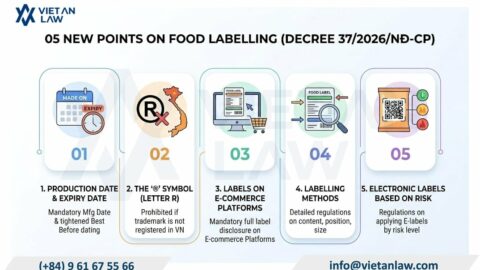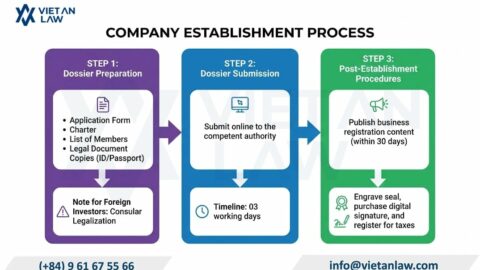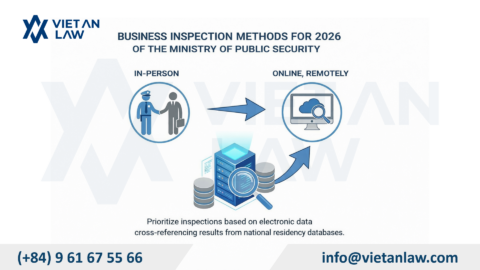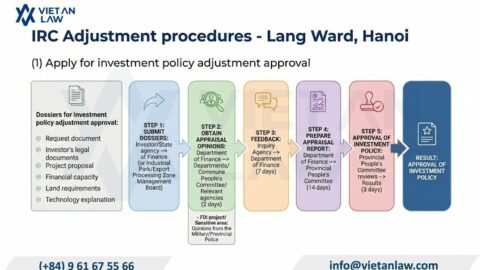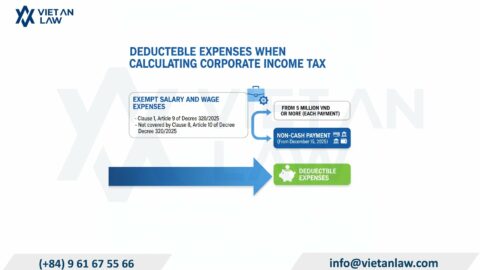Vietnam is entering a new phase in protecting personal data with the introduction of the Law on Personal Data Protection, which is expected to take effect from January 1, 2026. This is an important step in perfecting the legal framework on personal data protection, replacing the current Decree 13/2023/ND-CP. At Viet An Law, we recognize that the new Personal Data Protection Law 2025 in Vietnam, compared to Decree 13/2023/ND-CP, will create fundamental changes in the way businesses and organizations handle personal data.
Table of contents
One of the most important changes to the law is the significant expansion of the subjects of regulation under Article 1. While Decree 13/2023/ND-CP only applies to Vietnamese agencies, organizations, and individuals operating abroad, the new law has removed this provision and replaced it with a more comprehensive approach.
Under the new regulations, the law applies to
This change shows the new points of the Law on Personal Data Protection 2025 compared to Decree 13/2023/ND-CP towards more comprehensive protection of the rights of Vietnamese citizens, while expanding compliance responsibilities for foreign organizations.
Article 2 of the Law has improved the definition of personal data, from the concept of “information in the form of symbols, letters, numbers, images, sounds or similar forms in the electronic environment” in Decree 13 to “digital data or information in other forms that identify or help identify a specific person“.
This new definition has:
At the same time, the law also clearly classifies personal data into two groups: basic personal data and sensitive personal data, with specific categories issued by the government.
According to Article 4 of the Law, the new points of the Law on Personal Data Protection 2025, compared to Decree 13/2023/ND-CP, are clearly shown in the adjustment of the rights and obligations of data subjects. While Decree 13 stipulates 11 rights and 5 obligations, the new law simplifies them into 6 basic rights and 4 obligations.
A highlight is the addition of the right to request that other parties take measures and solutions to protect their personal data. The law also establishes three basic principles:
Article 7 of the Law specifies and supplements prohibited acts. In addition to maintaining existing regulations, the Law additionally prohibits:
Article 8 adds a separate provision on handling violations of the law with penalties designed according to the seriousness of the violation:
According to Article 9, the new points of the Law on Personal Data Protection 2025, compared to Decree 13/2023/ND-CP, are reflected in clarifying the criteria for valid consent:
Accordingly, where the criteria for constituting valid consent are not met, the data subject may constitute a violation of the rights to the data subject’s personal data.
Article 14 of the Personal Data Protection Act 2025 introduces the concept of “anonymization” with specific methods such as deletion, masking, generalization, obfuscation, and noise addition. This is an important tool that allows organizations to use data in research and analysis without violating privacy.
Article 16 of the Law on Personal Data Protection 2025 for the first time specifically regulates the disclosure of personal data, requiring:
Article 17 of the Personal Data Protection Law 2025 clearly stipulates cases of personal data transfer, including sharing between departments within the same organization, business reorganization, and transfer to processors.
Article 20 of the Law on Personal Data Protection 2025 changes the word “overseas” to “cross-border” and expands the concept to include transferring data stored in Vietnam to an extraterritorial storage system. New points of the Law on Personal Data Protection 2025 compared to Decree 13/2023/ND-CP in this area include:
Article 33 of the Law on Personal Data Protection 2025 establishes a personal data protection force system, including:
Articles 38 and 39 of the Personal Data Protection Law 2025 demonstrate flexibility in implementing the law:
The new points of the Law on Personal Data Protection 2025, compared to Decree 13/2023/ND-CP, show that Vietnam is building a comprehensive, modern legal framework in line with international trends. The upgrade from Decree to law not only demonstrates the importance of the issue but also creates a solid legal basis for protecting privacy rights and promoting digital economic development.
At Viet An Law, we are committed to accompanying businesses in understanding and complying with new regulations, ensuring business operations run smoothly within the legal framework. With a team of experienced experts, we are ready to provide profound legal consulting services on personal data protection, helping businesses best prepare for this important change.
